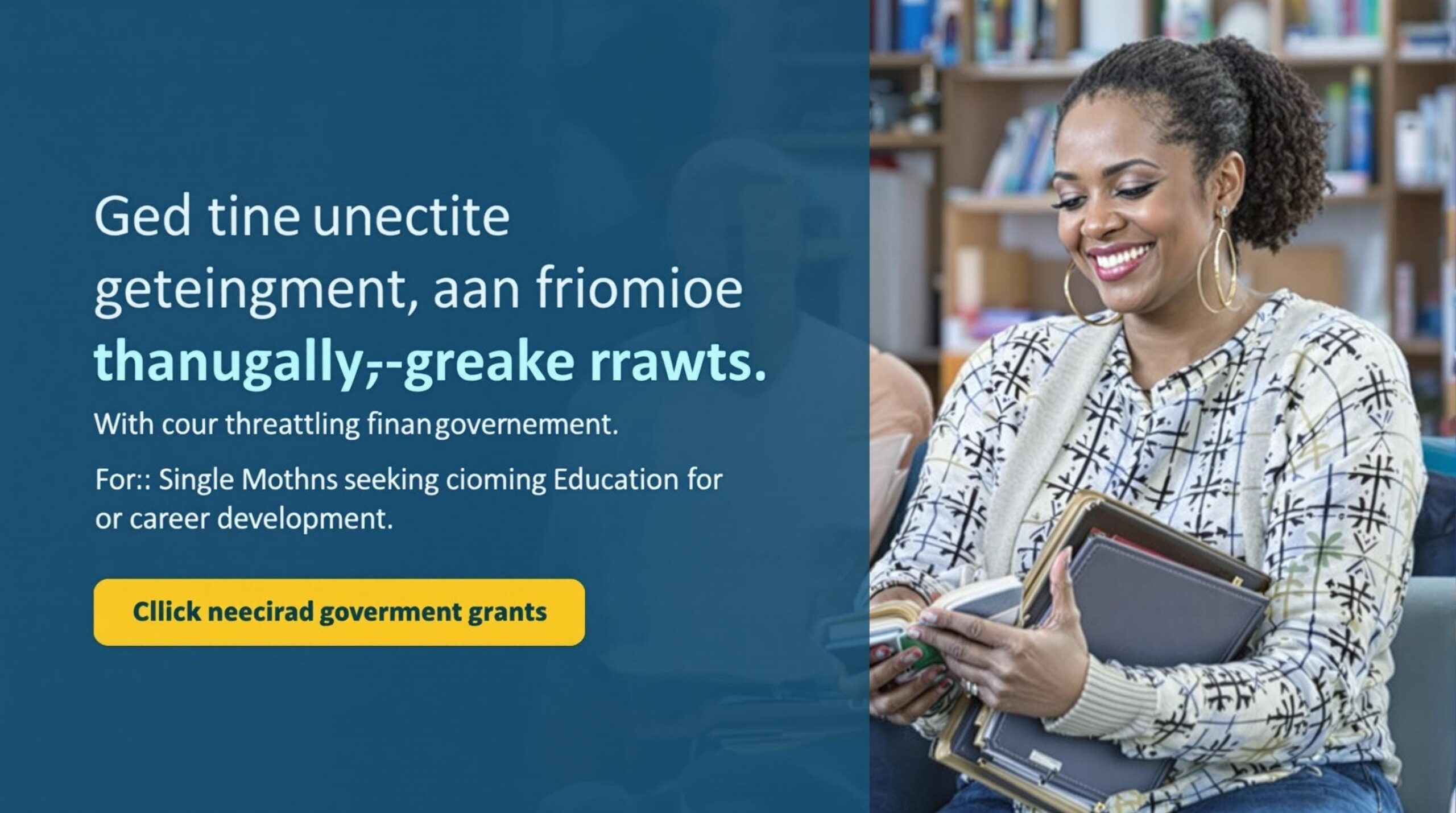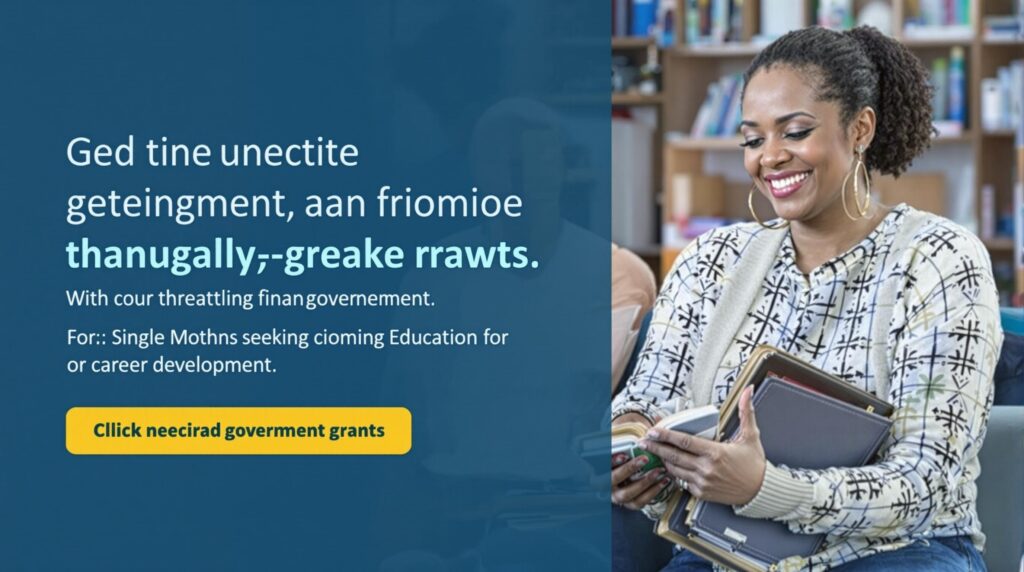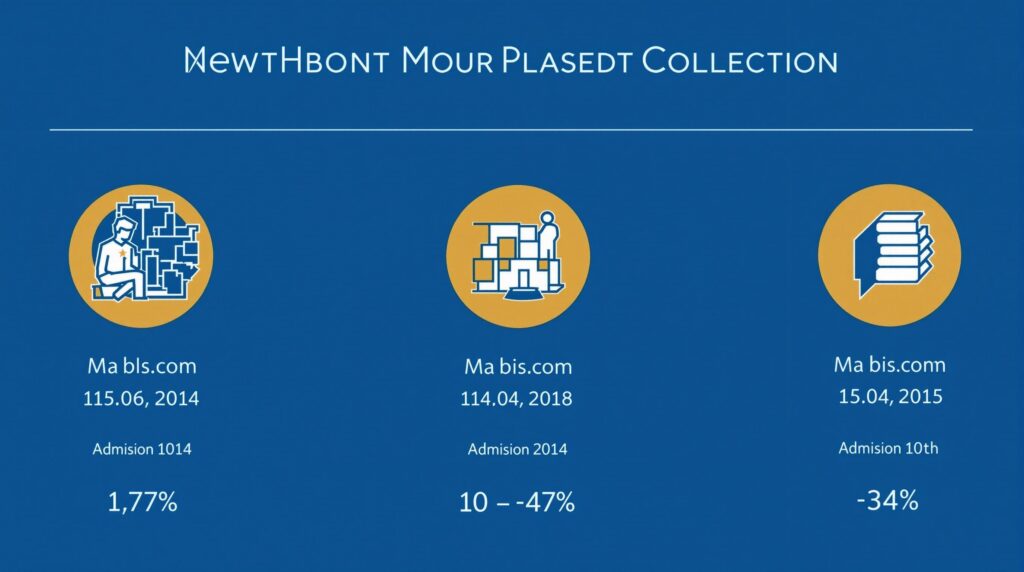Single mothers across America face extraordinary financial challenges while trying to advance their education and careers. Are there any grants for single moms? Absolutely—numerous federal, state, and private funding opportunities exist specifically designed to help single mothers overcome financial barriers and achieve their educational and career goals.
Key Takeaways
- Federal Pell Grants offer up to $7,395 (2024-2025) with no repayment required
- Single mothers accumulate $4,300 more student debt than non-parents on average
- State-specific grants like Cal Grant B provide additional financial support beyond federal programs
- Private scholarships such as the Soroptimist Live Your Dream Awards target single moms specifically
- Full-time enrollment can increase grant amounts by up to 22% compared to part-time status
Financial Challenges Facing Single Mothers
The financial reality for single mothers in America is stark. Nearly 28% of single mothers live in poverty compared to 15% of single fathers and just 5% of married couples. The wage gap is equally concerning—single mothers earn only 56 cents for every dollar earned by fathers.
Post-pandemic conditions have only worsened this situation, with poverty rates for single-mother households climbing to 29% in 2023. The challenges are even more pronounced for women of color, with Black single mothers having a median income of $38,000 and Latina single mothers earning even less at $34,000.
Education could provide a path forward, but here too, single mothers face barriers. Only 31% hold bachelor’s degrees compared to 54% of married mothers. When they do pursue higher education, single mothers take on significantly more debt—averaging $29,600, which is $4,300 more than students without children.

Federal Pell Grants: The Foundation of Educational Funding
Pell Grants form the cornerstone of financial aid for many single mothers pursuing education. For the 2024-2025 academic year, the maximum award reaches $7,395, with the average recipient receiving between $4,255-$4,491 annually. What makes these grants particularly valuable is that they don’t require repayment.
The Department of Education calculates awards using the Student Aid Index (SAI), which considers factors like income, household size, and enrollment status. Interestingly, single mothers attending four-year public institutions receive higher average awards ($5,320) than those at community colleges ($4,414).
The recent FAFSA Simplification Act has expanded eligibility, resulting in a 12.6% increase in recipients in 2024. For single mothers looking to maximize their Pell Grant, enrolling full-time (12+ credits) can boost award amounts by 22% compared to part-time status.
Additional Federal Grant Programs
Beyond Pell Grants, several other federal programs offer support for single mothers pursuing education:
- TEACH Grants provide $3,772 annually after sequestration reductions, with a lifetime limit of $15,088 for undergraduates. Recipients must teach high-need subjects in low-income schools for four years, or the grant converts to a loan.
- The Workforce Innovation and Opportunity Act (WIOA) allocated substantial funding in FY 2023: $948M for Youth programs, $885M for Adult programs, and $1.095B for Dislocated Workers.
WIOA funding fluctuates by 8-30% annually across states, but these programs offer a significant advantage for single mothers—many include childcare subsidies, substantially reducing out-of-pocket costs while pursuing education or training.
State-Specific Educational Grants for Single Mothers
State grants can provide crucial supplemental funding beyond federal aid. In California, Cal Grant B offers $1,648 for freshmen (covering living expenses) and increases to $9,704 for subsequent years (covering both tuition and living costs). A key benefit is the upfront cash assistance for books and transportation—expenses that often create barriers for single mothers.
Florida’s Student Assistance Grant provides a maximum award of $2,610 (2024-2025) for residents enrolled in at least 6 credits. This program specifically prioritizes part-time students, with prorated awards based on enrollment intensity—making it ideal for single mothers balancing education with childcare.
New York’s Part-Time TAP (Tuition Assistance Program) offers awards ranging from $1,000 to $5,665 for families with incomes under $125,000. Unlike many programs, Part-Time TAP supports non-degree seekers in vocational programs, such as healthcare certifications that provide career advancement.
Private Scholarships Targeting Single Mothers
Private scholarships often provide the most generous and flexible funding for single mothers. The Soroptimist Live Your Dream Awards average $1,000 at the club level but can reach up to $16,000 at the international level. Notably, 83% of these awards go to single mothers pursuing nursing or STEM degrees, with 120 recipients selected monthly.
The Patsy Takemoto Mink Foundation awards up to $5,000 to mothers with annual incomes under $28,000 for a family of four. The foundation prioritizes mothers in graduate programs, with 62% of 2024 recipients enrolled in public health or education fields.
For older single mothers, the Jeannette Rankin Scholarship offers $2,000-$10,000 renewable for five years. Eligibility requires women to be at least 35 years old with annual incomes under $20,000. A standout feature is the mentorship from alumni, contributing to a 78% degree completion rate among single mother recipients.
Strategies for Maximizing Grant Opportunities
To create a comprehensive funding package, consider these strategies:
- Prioritize renewable awards like the Jeannette Rankin Scholarship for long-term financial stability
- Leverage state-workforce partnerships through WIOA programs that include childcare support
- Maximize Pell eligibility by enrolling full-time when possible
- Research state-specific programs that may offer additional support beyond federal funding
- Apply for multiple private scholarships targeting single mothers in your field of study
The application process can be time-consuming, but the potential return is substantial. I recommend creating a calendar of application deadlines and dedicating a few hours each week to completing requirements. Many single mothers find success by applying to 8-10 different funding sources simultaneously.
Support Services Beyond Financial Aid
Effective grant programs offer more than just money—they provide comprehensive support services essential for single mothers. When researching opportunities, look for programs that include:
- Mentorship and career counseling alongside funding
- Childcare assistance or subsidies
- Networking opportunities that can lead to employment
- Institutions with dedicated support services for single parents
- Workforce development programs that combine education with job placement
These wraparound services often make the difference between simply starting a program and successfully completing it. For example, the Jeannette Rankin Scholarship’s mentorship component helps explain its impressive 78% completion rate among single mother recipients.
Sources
Iowa Starting Line – New Data Shows How Little Single Moms Make
Axios – Trump Vance Poverty Single Mothers
IWPR – Single Mothers in College
Urban.org – How New Federal Financial Aid Formula Affected Pell Grants
BestColleges – How Much in Pell Grants Can You Get 2024
BestColleges – Pell Grant Amount
EducationData.org – Pell Grant Statistics



